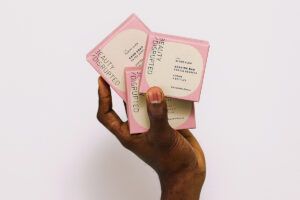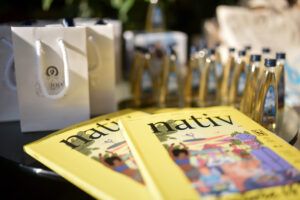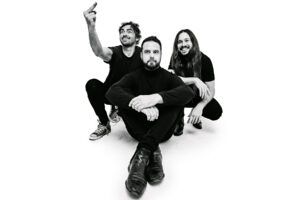Opened to the public in 2020, the Ibiza Botanical Biotechnology Park (BIBO) was a project started over 20 years ago. We spoke to the park’s director Eduardo Mayol about this extraordinary place.
When NATIV took a trip out to the amazing Ibiza Botanical Biotechnology Park (BIBO) near Sant Rafel to say we were blown away would be an understatement. The park, which seeks to educate, preserve and research the natural habitats of the Pityusic Islands, is a wonder. With an emphasis on the island’s flora, it is both beautiful and at the forefront of cutting-edge biotechnology. The park is recognized as one of the best in Europe with a team that includes prestigious botanists Professor Leonard Llorenç and Professor Doctor Joan Pedrola, biotechnological director Pablo Vidarte, environmental biologist José Luis López and Ibizan biologist Bartolomé Planas. It is also involved in important collaborations with companies researching microalgae, atmospheric water generators and ways of producing electricity from the soil.
Eduardo, BIBO is the most remarkable place. How did you become involved?
My background is actually in civil aviation, but in Ibiza my family have the first organic aloe vera plantation, so a connection is there.
You could say that gardens were one of humankind’s first creations. Was it important for you to be innovative and creative in the landscape and design of BIBO?
Absolutely – and even more so today perhaps than in the past, as you need to educate but you also need to keep leisure in mind. A beautiful garden is not enough in itself, it must also be attractive and fun. So, what we have done from the very start is to take a cultural approach: we want visitors to have a pleasant visit where they can connect with nature in original, engaging and stimulating ways. Play the unique plant piano, experience the salt flats, taste water drawn from the sky, and do it all in an incomparable space.

Describe a typical day for you at the park.
We open our doors at 10am, but by then I have already taken a tour of the grounds to check that everything is in order. The gardeners work every day from first thing in the morning. When visitors enter we offer an optional guided tour. This helps people understand the different habitats and biotechnology. I would say this is essential to understand the park well.
Are you inspired by advances in technology and new challenges, such as climate change and concerns about water?
Of course. Everybody knows the serious situation our planet is going through, and when you discover the very real possibility of seeking solutions, you realize that a different world is possible through nature. Here we show that you can turn on a light, charge a mobile phone, drink water, all naturally. This reaffirms the belief that through these types of advances a sustainable future is possible and that we must continue along this path. At BIBO we seek solutions for a better world through biotechnology, taking advantage of the richness of the plant world.

Can you tell us about the different areas of the garden, and the impressive technologies?
The space is organized into habitats featuring more than 25,000 plants and 160 different species of flora and fauna from Ibiza and Formentera, presented as you might find them in nature. Through a colour code, visitors can identify common, rare or endangered flora – and even plants that have, unfortunately, become extinct in recent years in their natural habitats.
What is the plant piano?
This was developed by Spanish company Bioo. It is the world’s first plant piano, producing light and sound from interactions between humans and plants. It uses living plants as biological antennas that can sense changes in frequency when they come into contact with the electromagnetic field of the human body, and transform those changes into sound. It is an experience visitors never forget!

And Plato’s Corner?
This is a new area where visitors can relax in the shade of a fig tree. Here we have managed to generate electricity from organic matter, and create biological batteries that could be used to charge mobile phones. In a vision of the future biology will help to drive big cities.
Incredible. What are the atmospheric water generators?
This is amazing, and so important. Essentially, water capture technology allows us to take water from the atmosphere: high-quality drinking water with low mineral content, free from contamination and perfect for human consumption. Try Ibiza’s Agua del Cielo and compare its taste with that of the groundwater in the park!
The salt mine area is fascinating.
Yes. It’s a reproduction of a Mediterranean salt mine built with material used over 100 years ago from the old Ibiza salt mine. The past informing the future. From this you will understand how the mine worked and learn about an industry that was part of Ibiza and Formentera over the last three millennia.
We have featured the Ibizan wall lizard in this issue: are you also fans?
An incredible species. At the park you can learn all about the different colours of the subspecies and why we need to protect these creatures from snake attacks. We also have an area where you can learn all about the ancient beehives of Ibiza, introduced by the Phoenicians, and discover the wonderful world of honey through one of our functioning beehives.

Would you say education, research and conservation are the driving forces of BIBO?
Yes, they are all fundamental pillars of the creation and maintenance of the park. Research, together with conservation, are the engines that got us where we are and that encourage us to grow and carry on. Little by little, with education, people get to know us and become more interested in these vital issues at a time when destruction of the environment is so evident.
What plans do you have for the future of BIBO? What will happen in 2023?
BIBO is a living project. Future projects include the creation of a classic labyrinth supported by biotechnology and an oasis among palm trees. The construction of a laboratory and a seed bank has also been requested for the genetic study and traceability of native and endemic seeds.











